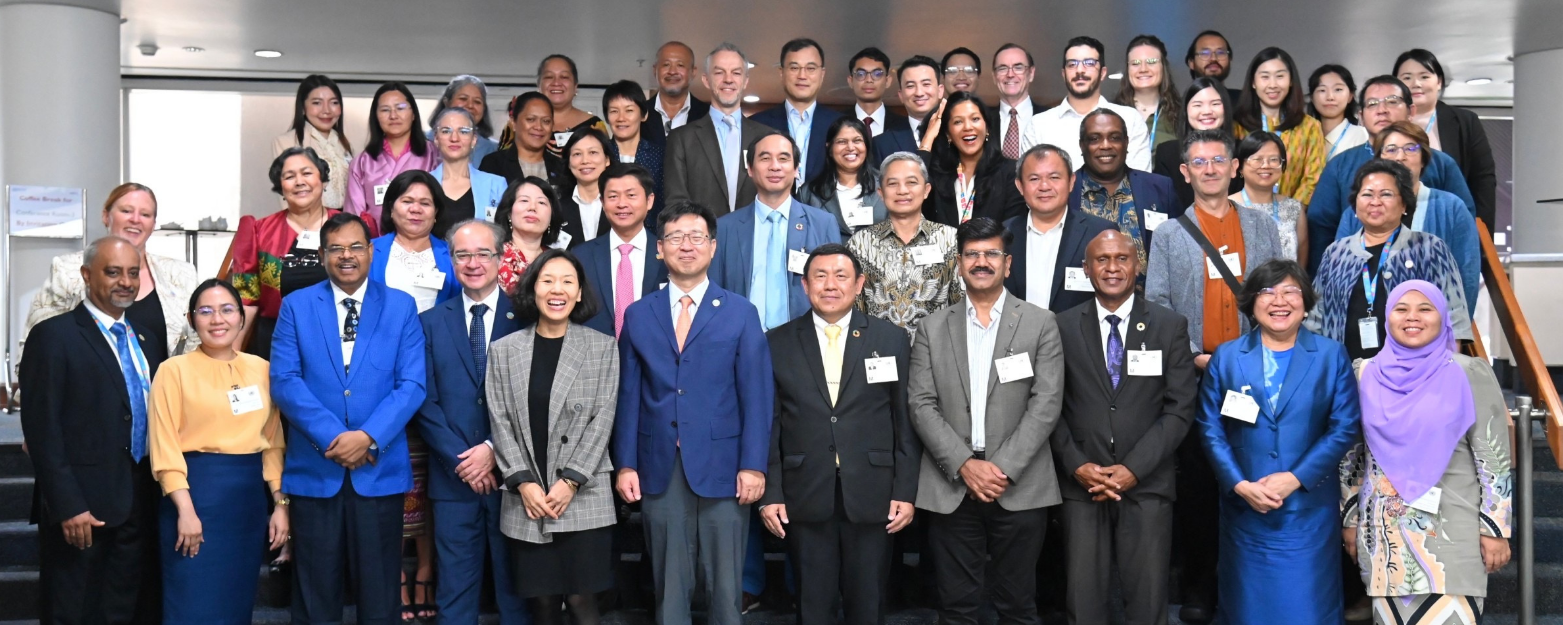Sustainable development in action: Insights from the regional review of food systems in Asia and the Pacific

Bangkok, Thailand, 29 April 2024: The United Nations Food Systems Coordination Hub, the ESCAP and FAO regional office for Asia and the Pacific brought together around 100 Food Systems National Convenors and other experts from across the Asia-Pacific region to assess the progress made in transforming food systems, as well as to facilitate regional knowledge sharing and identify emerging patterns and solutions.
The event was the last part of a series of regional preparatory meetings organized as a follow-up to the United Nations Food Systems Summit +2 (UNFSS+2) Stocktaking Moment, which occurred in Rome in July 2023. It built upon the discussions of the first Asia and the Pacific Regional Preparatory Meeting held on 13 March 2023 and UNFSS+2.
The meeting also followed the side side event at the APFSD10 in February 2024 ‘Food Systems Transformation as an Accelerator for SDGs Implementation and Climate Action in Asia and the Pacific Region’. Objectives of the meeting included:
- Reviewing the progress in food systems transformation and sharing identified challenges, best practices, and lessons learnt.
- Exploring strategies for aligning food systems transformation processes with climate action plans.
- Fostering regional collaboration and regional communities by exploring strategies for planning and coordinating future collaborative efforts among participating countries and stakeholders.
The meeting started with opening remarks by Mr. Sethakiat Krajangwongs, Deputy Permanent Secretary, Minister of Agriculture, and Cooperatives Thailand; Mr. Jong-Jin Kim, Assistant Director-General and FAO Regional Representative for Asia and the Pacific; Ms. Lin Yang, Deputy Executive Secretary, ESCAP; and Mr. Stefanos Fotiou, Director, UN Food Systems Coordination Hub.
Speakers highlighted that the Asia-Pacific region is not on track to achieve multiple SDGs including SDG1, SDG2, and SDG13, where food systems transformation is imperative to achieve these goals. A significant 44% of the population cannot afford a healthy diet in the region. Food security is especially severe among women with the highest gender disparities in South and Southwest Asia and West Asia (SOFI, 2023). Environmental crises further complicate the landscape, with increasing occurrences of floods, droughts, diseases, and other climate impacts affecting food production. However, simultaneously, food systems contribute to climate and environmental change, with escalating emissions from intensive energy use, transportation, trade, and high consumption of freshwater resources. In the region, climate risks are estimated to result in annualized economic losses amounting to USD 675 billion (~2.4% of the region’s GDP), primarily due to droughts, which significantly impact agriculture, where 80% of drought-related impacts occur in agriculture and livestock sectors. Without immediate action, temperature rises of 1.5°C and 2°C will cause disaster risks to exceed resilience capacities, surpassing the limits of feasible adaptation and threatening sustainable development. (ESCAP, 2023)
Country experiences
National Convenors from over 20 countries shared their perspectives and experiences in implementing their national food system transformation pathways, aligning food system efforts with climate action, and mobilizing financial and technical support during roundtable discussions and sub-regional breakout group discussions. Participants emphasized the urgent need to converge food systems transformation with climate strategies in a multi-sectoral approach and discussed collaboration and support from the Hub Convergence Initiative, development partners, and an active youth community in the region. Participants called for a fast-track line to food systems transformation and climate action, driven by commitment, collaboration, research and local-level implementation.
The event brought together members of the Ecosystem of Support from youth, UN agencies, international organizations and NGOs, farmers organization and regional networks such as ASEAN to share initiatives and key messages that can further support the implementation of the national pathway.
The full summary meeting report of the regional meeting will be available soon. Find the presentations from the Regional Meeting here.
Related Links
